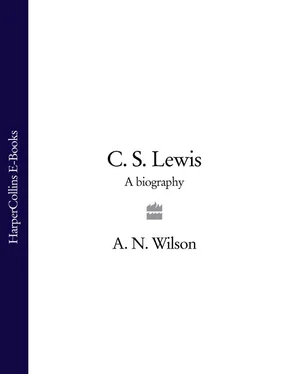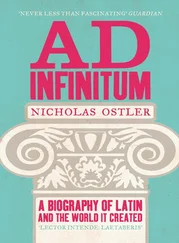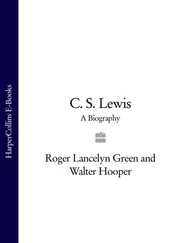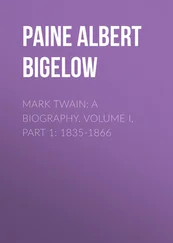A. Wilson - C. S. Lewis - A Biography
Здесь есть возможность читать онлайн «A. Wilson - C. S. Lewis - A Biography» — ознакомительный отрывок электронной книги совершенно бесплатно, а после прочтения отрывка купить полную версию. В некоторых случаях можно слушать аудио, скачать через торрент в формате fb2 и присутствует краткое содержание. Жанр: unrecognised, на английском языке. Описание произведения, (предисловие) а так же отзывы посетителей доступны на портале библиотеки ЛибКат.
- Название:C. S. Lewis: A Biography
- Автор:
- Жанр:
- Год:неизвестен
- ISBN:нет данных
- Рейтинг книги:5 / 5. Голосов: 1
-
Избранное:Добавить в избранное
- Отзывы:
-
Ваша оценка:
- 100
- 1
- 2
- 3
- 4
- 5
C. S. Lewis: A Biography: краткое содержание, описание и аннотация
Предлагаем к чтению аннотацию, описание, краткое содержание или предисловие (зависит от того, что написал сам автор книги «C. S. Lewis: A Biography»). Если вы не нашли необходимую информацию о книге — напишите в комментариях, мы постараемся отыскать её.
C. S. Lewis: A Biography — читать онлайн ознакомительный отрывок
Ниже представлен текст книги, разбитый по страницам. Система сохранения места последней прочитанной страницы, позволяет с удобством читать онлайн бесплатно книгу «C. S. Lewis: A Biography», без необходимости каждый раз заново искать на чём Вы остановились. Поставьте закладку, и сможете в любой момент перейти на страницу, на которой закончили чтение.
Интервал:
Закладка:
Standing in the Little End Room, I realized that I was beginning to come to terms with the Lewis phenomenon, and why it had such a hugely popular appeal. I had thought to go there merely in order to soak up ‘atmosphere’. I realized that what Lewis was seeking with such painful earnestness all his life was not to be found in this house; nor had it ever been, for any of the time he had lived there after his mother’s death. Without the capacity to develop an ‘ordinary’ emotional life, based on a stable relationship with parents, Lewis was driven back and back into the Little End Room, ‘further up and further in’.
It would have been good to see the wardrobe in Belfast, but it was not there. To see that, I journeyed over three and a half thousand miles to a small liberal arts college in the suburbs of Chicago: Wheaton College, Illinois. Between the two journeys I had spent months reading Lewis, and hours talking to those who knew him. An image of what he was actually like, as a man, was by now vividly clear to me. The reasons why many of his Oxford colleagues had disliked him were obvious. He was argumentative and bullying. His jolly, red, honest face was that of an intellectual bruiser. He was loud, and he could be coarse. He liked what he called ‘man’s talk’, and he was frequently contemptuous in his remarks about the opposite sex. He was a heavy smoker – sixty cigarettes a day between pipes – and he liked to drink deep, roaring out his unfashionable views in Oxford bars. This – the ‘beer and Beowulf’ Lewis – was understandably uncongenial to those of a different temperament. But I had also learnt that he was a kind and patient teacher, a loyal friend, a magnificently astute and intelligent conversationalist who had read much and who had the capacity to fire his hearers with a longing to read his favourite authors for themselves. Few of his friends had ever heard Lewis allude to his inner life, and even his religion was more to be taken for granted than to be aired in conversation. The gatherings of cronies in pubs or college rooms had no feeling of an evangelical prayer group. Two members of that celebrated group, known as the Inklings, have told me that there was always an air of English embarrassment when the subject of religion cropped up, and that Lewis’s activities as a religious broadcaster and writer were not something with which his fellow-Christians in the Inklings felt at ease. These men knew almost nothing of the Lewis who had emerged in my reading of private letters and diaries. They knew nothing from him of his childhood trauma, little of his two great emotional attachments to women, and next to nothing of his spiritual journey, even though one of these men, Hugo Dyson, had been responsible in part for persuading Lewis to abandon atheism and become a Christian.
C. S. Lewis the popular Christian apologist, who was reaching so many readers in Europe and the United States, was a phenomenon who had a life of his own in the minds of the reading public. His friends did know that this activity had generated an enormous band of admirers and enquirers, who wrote to Lewis from every corner of the globe and could be sure of getting a written reply.
Lewis did not ask to become a cult figure, but by writing so faithfully to his correspondents, he allowed the cult to build up. For many, including the penfriend he eventually married, the author of The Screwtape Letters and Mere Christianity was a guru or spiritual master who might be expected to provide Answers to Life’s Problems . That is not the title of one of Lewis’s books. It is the title of a book by Dr Billy Graham, the most famous alumnus of Wheaton College, Illinois. As you approach the college, you see on your left an enormous Greek Revival building known as the Billy Graham Center, built in honour of the famous evangelist. It is hard to imagine Billy Graham enjoying C. S. Lewis’s company at any length, though I believe the two met during one of Dr Graham’s crusades in England. Lewis was impatient with puritanism and disliked non-smokers or teetotallers. He liked to talk of books, books, books, and he would not have shared any of Dr Graham’s political enthusiasms. But the wardrobe from Little Lea has come to repose at Wheaton College, Illinois.
The Marion E. Wade Center on the upper floor of the college library is devoted to the memorabilia of various Christian writers: George MacDonald, T. S. Eliot, Dorothy L. Sayers, Charles Williams, J. R. R. Tolkien, C. S. Lewis and his brother Warren. The library has also recently acquired the papers of that veteran journalist and cynic Malcolm Muggeridge, and here the faithful may see Muggeridge’s portable typewriter kept, like the body of Lenin, in a glass case.
A portrait of C. S. Lewis, painted by T. M. Williams, smiles down on the reading room. It has the same glowing unreality as pious paintings of Thérèse of Lisieux or the Sacred Heart, adorning convent walls in days now gone. Hard by, in a glass display cabinet, are Lewis’s beer tankards and pipes, which in this abstemious atmosphere seem out of place. I worked at the table which, a brass plate informed me, had been in Lewis’s college rooms at Magdalen and subsequently in the dining-room at his house in Oxford, The Kilns. Dorothy L. Sayers and T. S. Eliot and many other famous people, it was claimed, had used this table. I had been reading Lewis, and talking to those who had known him, for the better part of twenty years, and doing serious research into his life for two years. I have come across no possible occasion when T. S. Eliot, with whom Lewis did not enjoy very cordial relations, would have used this table. What does it matter? The same sort of rationalist objections could be made about supposed relics of the True Cross. A piece of furniture stood in the corner of the room, carved by Lewis’s grandfather. It was the wardrobe. At Wheaton, one has stepped through the wardrobe into the world of make-believe.
Not long before my visit to Wheaton, a book by Kathryn Lindskoog had been drawn to my attention entitled The C. S. Lewis Hoax . It was published in Oregon in 1988 and it makes disturbing reading. Since its central thesis has been disproved, I imagine that it will not be published in Great Britain, though it was bought by a British publisher at the Frankfurt Book Fair in 1988. Lindskoog claims that one of Lewis’s feebler posthumous works, a semi-obscene piece of science fiction called The Dark Tower , a continuation of his space trilogy, was not in fact the work of Lewis at all, but a forgery by someone else. A manuscript of this depressing fragment is deposited in the Bodleian Library in Oxford and experts have made it clear beyond doubt that it is written in Lewis’s hand. Nevertheless, Lindskoog’s book is concerned with a much wider issue than the authorship of The Dark Tower . It amounts to one of the most vitriolic personal attacks on a fellow-scholar, Walter Hooper, that I have ever read in print.
As Lyle W. Dorsett, the curator of the Marion E. Wade Center, concedes, Lindskoog has gone too far in her assaults on Hooper’s good name. Her notions of a forged Dark Tower are mistaken, and some of her other assertions – for example, that the title given by Hooper to Lewis’s letters to Arthur Greeves, They Stand Together , is a piece of pederastic argot – are wide of the mark. For those of us who have known Hooper for a very long time, however, there are moments in Lindskoog’s diatribe where we recognize bits of truth. Hooper does, as Lindskoog asserts, like people to believe that he knew Lewis much better and much longer than was really the case.
The details of Lindskoog’s book are unimportant to the general reader. What strikes an outsider is how violently the C. S. Lewis devotees seem to dislike one another. From very early days, there has been a Great Schism in their camp. It is notoriously difficult for those outside the borders of a religious dispute to describe with accuracy the sticking points involved, and if I attempted a detailed analysis of the Lewis feuds I should probably fall into as many errors as if I were to attempt a discourse on the difference between Shiite and Sunni Moslems.
Читать дальшеИнтервал:
Закладка:
Похожие книги на «C. S. Lewis: A Biography»
Представляем Вашему вниманию похожие книги на «C. S. Lewis: A Biography» списком для выбора. Мы отобрали схожую по названию и смыслу литературу в надежде предоставить читателям больше вариантов отыскать новые, интересные, ещё непрочитанные произведения.
Обсуждение, отзывы о книге «C. S. Lewis: A Biography» и просто собственные мнения читателей. Оставьте ваши комментарии, напишите, что Вы думаете о произведении, его смысле или главных героях. Укажите что конкретно понравилось, а что нет, и почему Вы так считаете.












